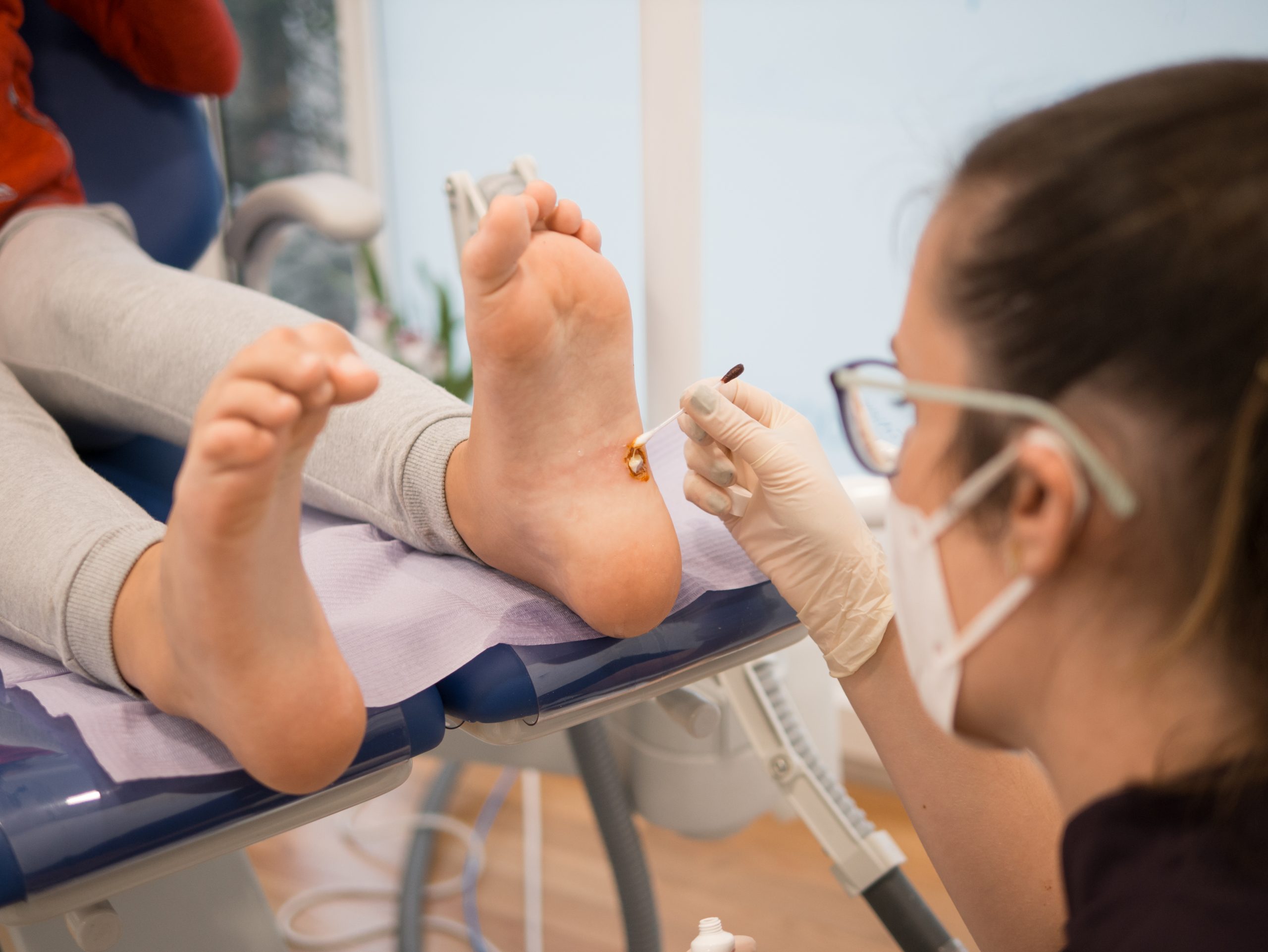Plantar warts are a type of skin infection caused by the human papillomavirus (HPV). While some plantar warts will go away on their own, some will require treatment and a visit to a podiatrist. As a result, it is essential that you act rapidly to get rid of them.
Learn about the causes, risk factors, and ways to prevent plantar warts.
How do you get plantar warts?
Plantar warts are an infectious and recurrent skin condition. To reduce the danger of transmission for you and your loved ones, numerous ways of infection must be identified.
- Through direct contact – also called “skin to skin,” plantar warts can be transmitted when there is direct contact between the skin of an infected person and that of another person.
- Through indirect contact – the infection can be spread through infected items such as the socks or shoes of a person with warts.
- By self-infection – plantar warts can quickly spread to other areas of your foot or body.
Who is at risk of developing plantar warts?
While plantar warts are contagious, several factors can increase the likelihood of infection. To effectively combat plantar warts, you must first identify the risk factors.
- Cracks on the feet – This is one of the main risks for plantar warts as the virus mainly enters through openings.
- Excessive sweating – A person who sweats heavily on the feet has a higher risk of getting and developing plantar warts due to moisture accumulation.
- Weakened immune system – Several factors can weaken the immune system and increase the risk of getting plantar warts. For example, patients undergoing chemotherapy, those suffering from diabetes or HIV are at a higher risk.
- Regular swimmers – This applies especially to children and teenagers, as they rarely wear sandals to the pool; as a result, their feet are more exposed to the risk of infection.
Can plantar warts be prevented?
Plantar warts can be uncomfortable and are frequently communicable, despite the fact that they are not a serious ailment. As a result, it is essential that you follow these guidelines to avoid becoming infected while also minimizing the spread of the infection.
- Keep your feet dry – Since moisture buildup and sweating are risk factors, air your feet regularly to keep them dry. Also, explore our resources for preventing sweaty feet.
- Change your socks regularly – Opt for socks made from natural fibers or cotton and change them regularly to avoid spending several hours in wet socks.
- Avoid walking barefoot – Especially in public places like swimming pools, saunas, gyms or public showers. If you have walked barefoot in a public place, wash your feet with soap and water.
How to reduce the transmission of plantar warts?
Do you have plantar warts and don’t want to spread the infection to your family or other parts of your body? Here are a few suggestions for lowering the danger of transmission.
- Cover the infected areas – Use a bandage and a stocking, made of natural fiber or cotton if possible, to cover your plantar warts to prevent transmission.
- Avoid touching the wart – It is important not to scratch or bleed on a plantar wart.
- Wash your hands well – If you do get a wart, wash your hands well with soap afterwards to avoid self-infection.
Isolate infected items – To reduce the risk of transmission, isolate your socks, shoes, bath towel, or other infected items. Wash everything regularly with soap or disinfect it.
PiedReseau is here to help you get rid of plantar wart pain
Do you have plantar warts? Keep in mind that you can try various at-home remedies. Would you like to enlist the assistance of a professional? Find out when you should see a podiatrist for your plantar warts and what treatment options are available. Make an appointment with PiedReseau, a network of podiatrists in more than forty clinics throughout Quebec.

